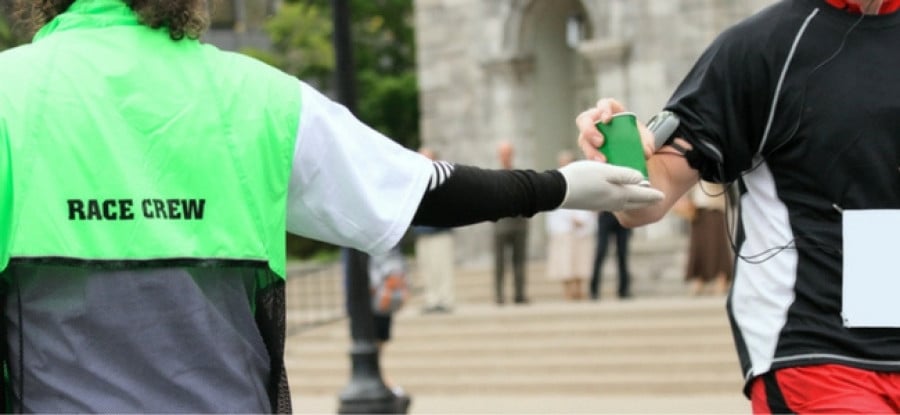What sports organisations need to consider when offering internships and volunteer roles

Sport offers some individuals the opportunity to earn eye-watering amounts of money at the very top end of the professional game. However, at the other end are those individuals and organisations struggling to make it, relying on often precarious funding arrangements, or handouts from family and friends, in order to keep going. A common theme is that there are many passionate individuals desperate to work in the industry, whether just to be a part of it or with a view to carving out a long-term career.
For those who can support themselves there are plentiful opportunities to get a foot in the door in exchange for little or no pay, through voluntary and entry-level roles. It is true that these roles may offer valuable experience and that pay can be a secondary concern, at least for some. However, it is important for clubs, governing bodies and other employers to ensure that roles within their organisation are correctly categorised and in particular that, where applicable, they pay the National Minimum Wage (“NMW”).
This article examines the legal position in England and Wales on internships and volunteers in sport and whether those people are eligible to receive the NMW. Specifically, this article covers:
- Background to the problem – issues of unpaid and low-wage internships at football clubs and the wider scale of the situation.
- Who is entitled to the minimum wage?
- Does training and work shadowing create an employment relationship?
- How should internships be treated for purposes of NMW?
- Who qualifies as a volunteer?
- What are the alternatives to offering internships?
- What happens if the NMW is not paid?
- What are the remedies for individuals who think that they are being underpaid or who wish to report an employer?
- Tips for employers on how to be clear on the type of work they are offering and what they can expect in return
- Final tips and points to remember about the NMW
Background
Back in 2013, it came to light1 that several premier league clubs including Swansea City, Reading2 and Wigan Athletic were advertising for unpaid and low-wage internships. This was described at the time by the press as unfair and exploitative.3
In a study conducted by The Sutton Trust4, it was found that roughly 31% of University graduates were working on unpaid internships. They estimated that a six month unpaid internship would cost a single person in London around £926 a month. It found that unpaid internships were only a possibility for those with the financial means to work for free and still support themselves. Many industries, including those in the sports sector, prefer to hire individuals with experience. If it is only possible to get this experience via an unpaid internship there is effectively a barrier to entry to those in less financially secure positions.
However, the issue remains widespread and a simple internet search will reveal a range of internships in organisations within the sports industry which are stated to be unpaid. The Government also suggested last month that it will look at the problem of unpaid internships and consider whether to introduce a ban.5 It is therefore important to understand what is and what isn't allowed at the moment regarding unpaid work.
Who is entitled to the National Minimum Wage?
The National Minimum Wage Act 1998 (“NMW Act”) provides that an individual who works under an employment contract6 or a contract under which the individual (a “worker”) personally performs work or services for someone who is not a client or customer of the individual's own business7, is entitled to the NMW. Since 1 April 2016 the NMW also includes the higher rate for workers aged 25 and over known as the National Living Wage.8 This is not to be confused with the even higher rate Living Wage that is calculated and advocated on a non-mandatory basis by the independent Living Wage Foundation.9 Current NMW rates are £7.20 for those who are 25 and over, £6.95 for those between the age of 21 to 24, £5.55 for those between the age of 18 to 20 and £4 for those under 18.10
It is not always straight forward to determine whether someone is an employee or worker or self-employed as the test considers a number of factors. This was seen in the recent Uber case (Aslam & Farrar -v- Uber11) where it was decided by the Employment Tribunal that Uber drivers are in fact workers as Uber has multiple rules controlling how they operate:
- Uber interviews and recruits the drivers; it stipulates the make of car drivers are allowed to use, the default route that the driver is to take and the fare;
- It operates a system of disciplining drivers by logging them off the app temporarily or permanently if they contravene any rules;
- Uber also accepts the risk of loss that would fall upon the drivers themselves if they were self-employed.
- The level of control Uber exercised over the drivers meant that they could not be in business on their own account.
Where someone is expressly stated to be an “employee”, there is unlikely to be any issue in establishing that they are entitled to the NMW. However, uncertainty can arise in circumstances where an individual does not have an employment contract and is described as a “freelancer”, an “independent contractor”, an “intern” or a “volunteer” etc. The central question is: is such an individual a 'worker' for NMW purposes?
The starting point for identifying “worker status” is to determine whether or not the individual is working under a contract at all. Contracts involve reciprocal obligations. The basic elements of a contract are: an offer of work, acceptance of that offer and consideration. There must also be an intention for a legal relationship to arise. Offer and acceptance are usually easy to identify in these circumstances, regardless of whether there is any written agreement. Consideration is usually pay received in exchange for work done, but can also be found in the giving of expenses or a benefit in kind. An intention to create legal relations will usually be assumed in a business context, unless, for example, the work involves the employment of family members.
If there is a contractual relationship between the parties, the next issue is to consider is what type of contract the individual is working under. First, there must be an obligation of personal service on the part of the worker. Secondly, the other party to the contract must not be a “client or customer of any profession or business undertaking carried on by the individual”.
Does training and work shadowing create an employment relationship?
To continue reading or watching login or register here
Already a member? Sign in
Get access to all of the expert analysis and commentary at LawInSport including articles, webinars, conference videos and podcast transcripts. Find out more here.
- Tags: Contract | Criminal | Employment | Employment Rights Act 1996 | Employment Tribunal | HM Revenue & Customs (HMRC) | Internship | National Minimum Wage Act 1998 | Olympic Delivery Authority | United Kingdom (UK) | Volunteer
Related Articles
- What does the Social Action, Responsibility & Heroism Act 2015 mean for sports volunteers and NGBs?
- Interview with Katherine Grainger and Vijay Parbat on their work with International Inspiration - Episode 32
- The importance of knowing your legal duties as a charity trustee - the story of Didier Drogba
- How the Premier League gives back to the community
Written by
Libby Payne
A former competitive fencer, Libby is now an equally enthusiastic employment and sports lawyer. She acts for both employers and senior executives and also for sports clubs' agents and athletes. Having a real passion for the law, Libby enjoys coming up with creative and practical solutions to even the most novel issues.




